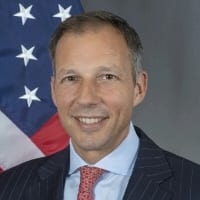Sessions With Francis R. Fannon
Tuesday, 10 March
-
11:30am - 12:30pm (CST) / -
Oil Market Outlook: Will the cycle of surplus continue?
MarketsSince 2013 the global oil market has been in a cycle of supply surplus, with prices falling five out of the past seven years. The Vienna Alliance has entered a fourth year of production restraint just as a cast of non-OPEC countries is beginning a period of production growth, offsetting decelerating gains from the United States. And now the impact of the coronavirus is leading to the first quarterly decline in world oil demand since the 2008/09 financial crisis. What is the outlook for the oil market as China begins to recover?
- Speakers:
- Jim Burkhard
- Adam Sieminski
- Dr. Ayed S. Al-Qahtani
- Ben Luckock
- Francis R. Fannon
- Colin Fenton
-
05:55pm - 06:30pm (CST) / -
Plenary - Europe, Russia and US: Who drives Europe's energy security?
Geopolitics/Policy/RegulatoryEuropean energy security—particularly where natural gas is concerned—has recently been the subject of high-level geopolitical debate. From the perspective of many in Europe, the continent’s gas supply has never been more secure, thanks to major EU gas market reforms over the past 15 years and, at present, plentiful supply in the global LNG market. However, the United States sees threats to European energy security from new Russian pipelines—a view shared by some countries in Central and Eastern Europe. Meanwhile, the continued growth of renewable generation in Europe points toward the localization of energy production in the long term. How secure is Europe’s energy supply? Can the US play a constructive role in Europe's energy security? Should Russia be viewed as part of the problem, or can it be part of the solution?
- Speakers:
- Laurent Ruseckas
- Francis R. Fannon
- Michaela Spaeth
- Maria Rita Galli
- Roman Opimakh
Wednesday, 11 March
-
09:30am - 10:20am (CST) / -
The New Prize: Securing lithium, battery materials & renewables supply chain
Clean TechThe market for lithium-ion (Li-ion) batteries—the undisputed battery of choice for the rapidly expanding electric vehicle (EV) market—is expected to grow quickly in the coming years. What is the future availability of the various metals that are required to manufacture the different types of Li-ion batteries? Can enough lithium supply be brought online to enable the mass adoption of EVs? Will there be any bottlenecks for the metals used in Li-ion battery cells, and could this hinder EV adoption? What other potential disruptions are on the horizon for the battery supply chain?
- Speakers:
- Saad Rahim
- Francis R. Fannon
- Jonathan Evans
- Morgan Bazilian

